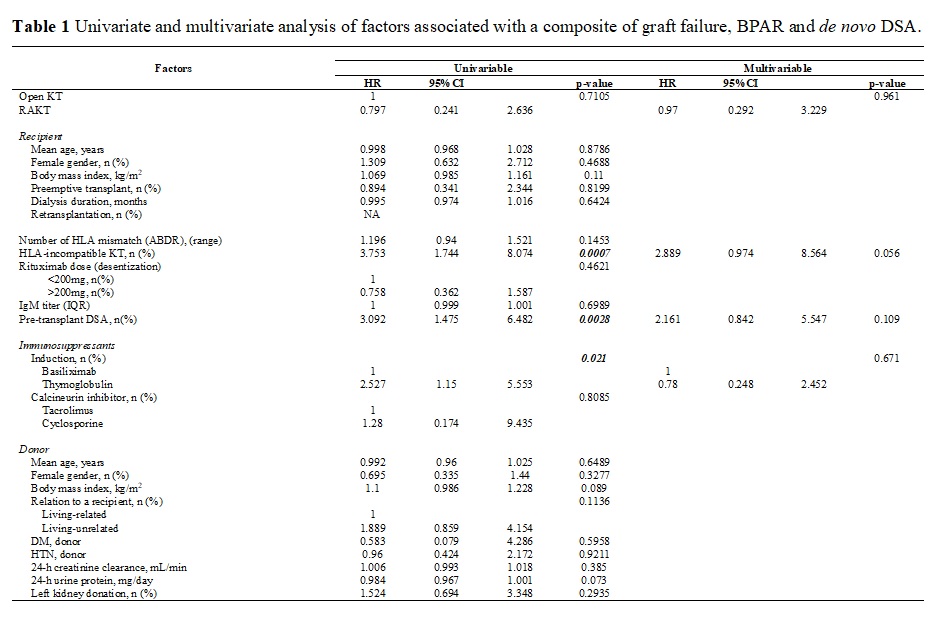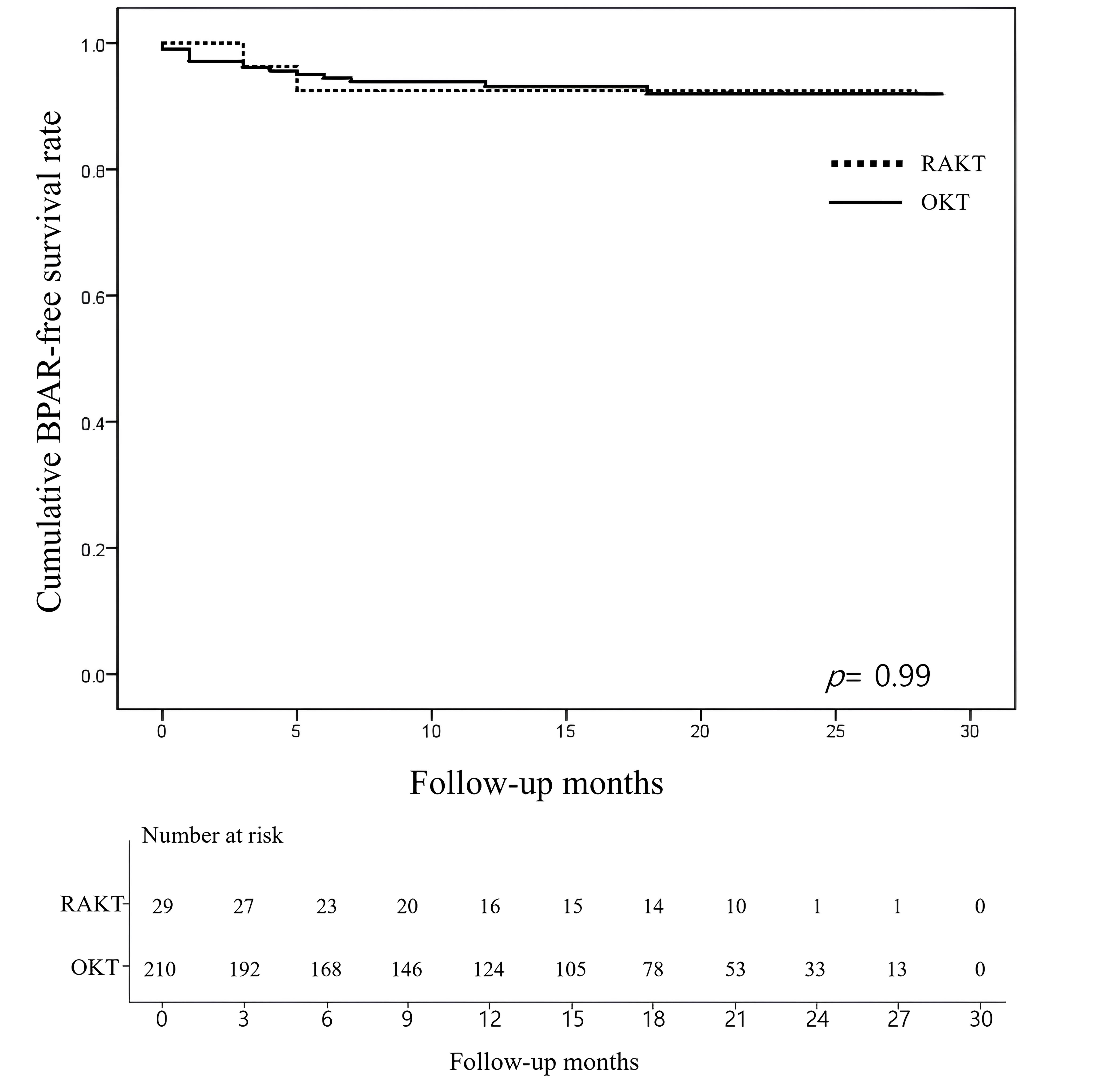Comparison of ABO-incompatible kidney transplant outcomes between robot-assisted and open techniques
Jin-Myung Kim1, Hye Eun Kwon1, Youngmin Ko1, Joo Hee Jung1, Hyunwook Kwon1, Young Hoon Kim1, Sung Shin1.
1Department of Surgery, Asan Medical Center, Seoul, Korea
Background: Robot-assisted kidney transplantation (RAKT) is increasingly being adopted
worldwide. Despite this growing interest, there remains a notable gap in the literature,
especially concerning its effectiveness in immunologically high-risk patients compared to the
conventional open kidney transplantation (OKT). This study is focused on exploring the
viability and success of RAKT in comparison with OKT, particularly for recipients with ABO
incompatibility (ABOi).
Method: A retrospective analysis was conducted on 239 living-donor
transplants at a single center, comprising 210 OKT and 29 RAKT cases. Perioperative
outcomes, graft survival, and renal function were assessed. A composite of biopsy-proven acuterejection (BPAR), graft failure, and the development of de novo donor-specific antibodies
(DSA) was analyzed through univariate and multivariate models.
Results: Both RAKT and OKT groups showed comparable one and two-year BPAR-free
survival rates (RAKT: 92.4%, OKT: 93.1% and 91.9% respectively) and similar mean eGFR
values (RAKT: 64.41 ml/min/1.73m², OKT: 65.75 ml/min/1.73m²). OKT had a significantly
shorter cold ischemic time and operative time but longer hospital stays compared to RAKT.
Univariate and multivariate analyses indicate no significant difference in the composite
outcome (BPAR, graft failure, de novo DSA) between the two groups.
Conclusion: RAKT presents as a safe and effective alternative to OKT in ABOi patients, with
similar perioperative outcomes, graft survival rate, and renal function.


[1] ABO incompatibility
